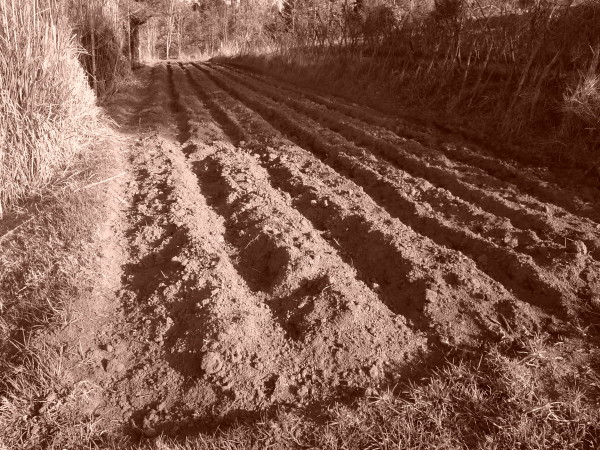“The roots of all goodness lie in the soil of appreciation of goodness.” — The Dalai Lama
When Labor Day comes rolling in, regardless of the weather, I think about fall, harvest, and the land. There is a certain sweetness to feeling the rich, crumbly soil in my hands. Knowing that the days of digging in the earth before the cold weather settles in are numbered.
On this American holiday, I think of Thomas Jefferson and George Washington, whose love of the land was boundless and whose appreciation of the soil has left a significant imprint on those of us who dig in it.
“While the farmer holds the title to the land, actually it belongs to all the people because civilization itself rests upon the soil.” — Thomas Jefferson
“Whenever there are in any country uncultivated lands and unemployed poor, it is clear that the laws of property have been so far extended as to violate natural right. The earth is given as a common stock for man to labor and live on. The small landowners are the most precious part of a state.” — Thomas Jefferson
“I know of no pursuit in which more real and important services can be rendered to any country than by improving its agriculture, its breed of useful animals, and other branches of a husbandman’s care.”
— George Washington
I think about the revered Nobel Laureate, Irish poet, Seamus Heaney, who died this weekend and who the NY Times called ‘ the Irish poet of soil and strife’. In his well known poem ‘Digging’, his words are about the Irish landscape, but the meaning is universal.
DIGGING
“Between my finger and my thumb
The squat pen rests; snug as a gun.
Under my window, a clean rasping sound
When the spade sinks into gravelly ground:
My father, digging. I look down
Till his straining rump among the flowerbeds
Bends low, comes up twenty years away
Stooping in rhythm through potato drills
Where he was digging.
The coarse boot nestled on the lug, the shaft
Against the inside knee was levered firmly.
He rooted out tall tops, buried the bright edge deep
To scatter new potatoes that we picked,
Loving their cool hardness in our hands.
By God, the old man could handle a spade.
Just like his old man.
My grandfather cut more turf in a day
Than any other man on Toner’s bog.
Once I carried him milk in a bottle
Corked sloppily with paper. He straightened up
To drink it, then fell to right away
Nicking and slicing neatly, heaving sods
Over his shoulder, going down and down
For the good turf. Digging.
The cold smell of potato mould, the squelch and slap
Of soggy peat, the curt cuts of an edge
Through living roots awaken in my head.
But I’ve no spade to follow men like them.
Between my finger and my thumb
The squat pen rests.
I’ll dig with it.”
From Death of A Naturalist, Mr. Heaney’s inaugural book of poems
I think of Mary Oliver, the author of more than 10 volumes of poetry whose soulful relationship with nature, self, death, and beauty is legendary.
THE BOOK OF TIME (a paragraph from it)
“What secrets fly out of the earth
when I push the shovel-edge?
when I have the dirt open?
And if there are no secrets?
what is that smell that sweetness rising?”
From The Leaf And The Cloud: A Poem —Mary Oliver
And with thoughts from his backyard in Prague -Karl Capek – considered one of Czechoslovakia’s greatest playright’s –
“The soil opens up but does not yet produce a green leaf; still one can take it as it is, as a bare and waiting soil. At present it is still the time for manuring and digging, draining and trenching, lightening and mixing. Then the gardener finds that his soil is too heavy, too clayey, or too sandy, too sour or too dry; in short, the passion to improve it somehow springs in him.You may be sure that the soil can be improved by a thousand different means; fortunately the gardener has not usually got them at hand.” From The Gardener’s Year – Karl Capek
My final thoughts
On this day of reflection
I think about how sacred the soil is
And yet we walk on it carelessly
I think about how magnificent the world will be
When we slow down
Breathe in the earth’s splendor
And tread lightly on it with gratitude
And love.

